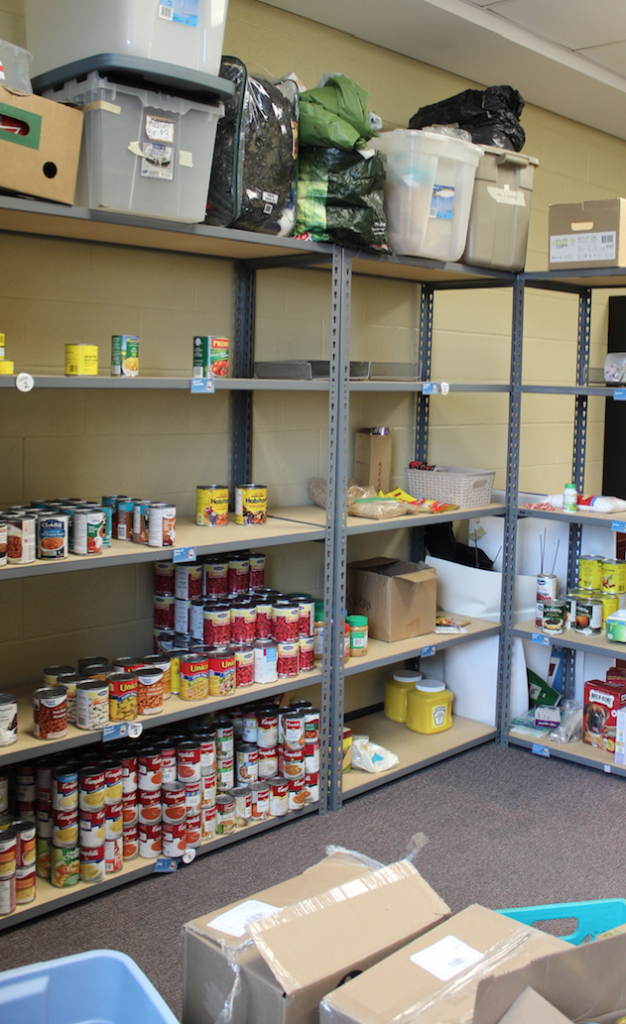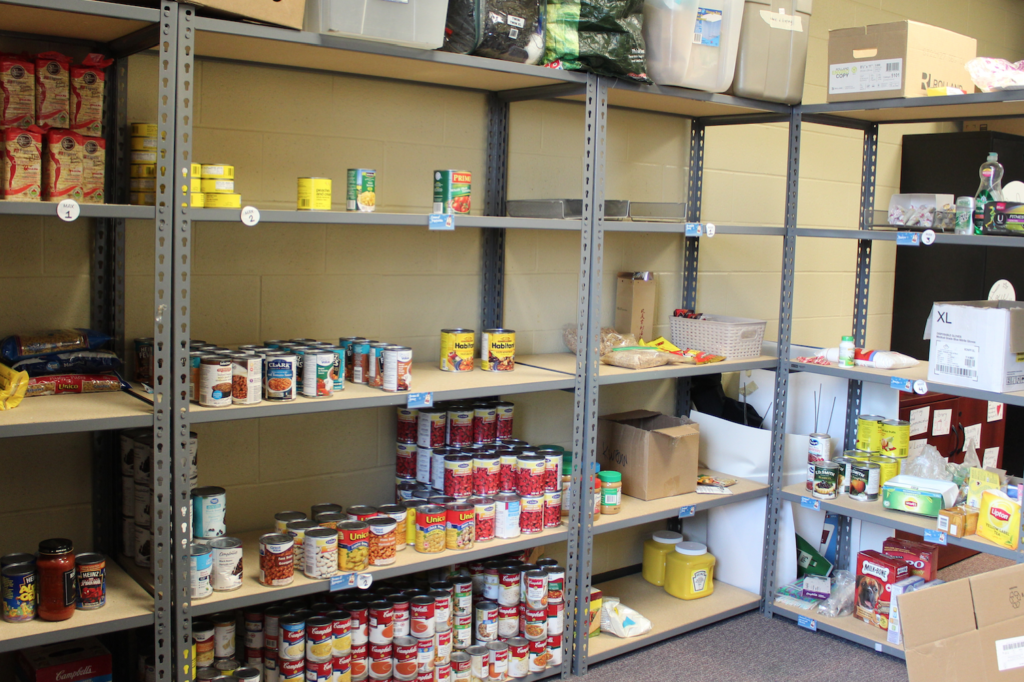
The number of single people accessing food banks in the Waterloo Region has doubled over the past five years from 25 per cent of individuals to 49 per cent.
Kim Wilhelm, Director of Development for the Food Bank of Waterloo Region (FBWR), said the drastically increased cost of living is a major cause for increased food bank usage.
“In 2019, the cost of healthy living for a family of four in Waterloo Region was about $876 per month, which is almost a five per cent increase since 2017, or an additional $41 per month,” she said.
Waterloo Region has some of the fastest growing housing expenses in the country.
“It is becoming more difficult for individuals and families in our community to access healthy, affordable, nutritious food,” Wendi Campbell, Chief Executive Officer of FBWR said in a media release.
“Increased competition for affordable accommodations and the steadily climbing housing and food costs are forcing families to make difficult decisions when it comes to putting food on the table.”
Students struggling with rising living expenses may have an effect on the massive increase in individuals accessing food banks. Narayan Subramoniam, Development and Analytics Executive of the WUSA Student Food Bank said food insecurity is a major issue for students.
“Especially with recent cuts to OSAP, where there’s so much uncertainty, food security is a major issue and it’s a huge stressor for students because not knowing where your next meal is coming from prevents you from studying, prevents you from volunteering and all that, because you’re so focused on where you’re next eating, it’s definitely a very bad fault in the system many of us have fallen into,” he said.
According to a FBWR media release, 79 per cent of people accessing food assistance in Waterloo live in rentals, and these steadily increasing costs have a direct impact on the ability to afford food.
Many students rely on rentals to live in while attending school in Waterloo, where average rental price has increased 21 per cent from 2012 to 2017.
“The current social safety net clearly has some huge holes in it, and it’s just not equipped to handle a changing labour market at rapidly rising costs of living,” Wilhelm said.
Additionally concerning data reveals that 35 per cent of children access food banks in the Waterloo region, slightly above the national average.
FBWR maintains that more needs to be done at a legislative level to reduce food insecurity.
Increasing numbers of seniors are also accessing food banks.
Wilhelm believes advocacy is important to communicate community needs. FBWR experienced disappointment over the cancellation of the basic income project after conservatives took power in the 2018 Ontario election.

“I think it’s really important to continue to advocate for that, and speak to local government representative the importance of that. If we could re-implement the basic income, that would be a huge step,” she said. “We know that when we were seeing basic income, we were seeing positive steps, and it would be a great thing for that to come back.”
Despite increasing need, Wilhelm is not worried about food running out for now due to strong community support.
“Today, no, but the reality is the need for food is continuing, as long as the community continues to come together, and help donate to help us work with the more than 100 community agency partners, we can continue to provide,” she said.
The WUSA Food Bank is adapting to meet increasing needs with their resources. Subramonium explained that as a community partner, FBWR delivers food on a twice-monthly basis. Because of this reliability, food supply is not currently an issue, but volunteer resources are.
“Our volunteers are there every single day, and so it requires a lot of volunteers and a lot of organization, and filling each slot is challenging,” he said.
“We’ve also seen a decreasing trend in volunteers, because we need on average 50 to 80 volunteers, so there are sometimes gaps in slots, and organizing the schedules of 80 people is a tremendous amount,” Subramonium said.
The WUSA Food Bank will switch to a hamper service, where students can access 10 lbs. hampers of food separated by dietary restrictions, with their WatCard.
Both WUSA food bank and FBWR rely on community support to keep them running.
Wilhelm says it is important to remember that food banks need donations year-round.
“At this time of year we definitely see an increase in donations but we need to remember that it’s a need year-round, not just at Christmas time,” she said.
“[People] can visit our website at TheFoodBank.ca, and there’s lots of different ways they can get involved by donating food, donating funds, or maybe you have some time to help, we’re always recruiting volunteers to work in our warehouse or to help out with events around the community,” Wilhelm said.
WUSA Food Bank is currently holding Stock the Bank event, where teams compete to collect the most food donations for the bank.
“We send out a needs list, so small jars of peanut butter are worth five points, and anything else that’s not on this needs list, like ramen, is only worth one point. So the teams compete against each other, and at the end of the event we announce the winner and there is a $150 gift card and a golden can,” Subramonium explained.
Students in need of food assistance can access WUSA Food Bank at SLC 3102, or pick up a hamper from SLC or DC turnkey desks. The only eligibility criteria and identification needed is an active WatCard.
Students can pick up only 10 lbs.of food three times per month, so the WUSA food bank is not an end-all solution.
“At the end of the day, the WUSA Food Bank is a temporary short-term solution, we can’t be the place that you rely on just because it simply wouldn’t be feasible, but there are other resources in our community that are here for you,” Subramonium said.
Any resident of Waterloo region can access food assistance from FBWR.





























